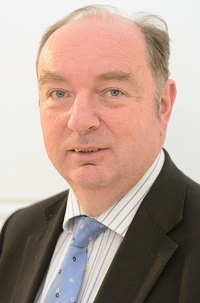Sometimes it is hard not to be fatalistic. Climate change is gathering pace, a trend that can only increase as the poles melt and the frozen permafrost of the tundra releases its massive store of methane. Our oceans are full of plastic, including microplastics in vast quantities that are killing aquatic life and entering the human food chain. And for me, most depressing aspect of all is the accelerating extinction rate. We are losing vast numbers of mammals, birds, insects and plants, never to return. We could normally expect a background rate of between one and five species lost per year. The present extinction rate is up to ten thousand times that, higher than at any time in the last 65 million years. We will have lost another couple by the time you finish reading this blog. By 2050, half all of species may have gone for ever.
Yet the only responsible course to follow is to do everything possible to try to bring to an end damaging human behaviour and hope against hope that somehow we will be in time to prevent the ecological and environmental catastrophe that is bearing down upon us.
There are some hopeful signs. We do have an international agreement on climate change, even if it is too weak and Trump has pulled the US out of the accord. And China, the world's largest polluter responsible for 28% of carbon emissions, has committed to a net zero date of 2060 – far too late of course, but a major shift by them in the right direction.
Here in Britain we are responsible for just 1% of global carbon emissions, but that is not a reason for inaction. The good news is that our total carbon emissions have fallen 29% over the last decade while the economy grew by a fifth – these of course are pre-COVID figures. We are now back to 1888 carbon emission levels.
The big gains have come from the virtual eradication of the use of coal (though I note permission has been given for the first new deep mine for 30 years). Future gains will therefore have to come from other sources.
Renewable energy is roaring away, and by 2019 was responsible for around 40% of electricity generated. There is no reason why this should not increase a good deal further at the expense of gas. And it is massively cheaper, and of course safer, than nuclear energy, as some of us have been pointing out for decades.
But it is in transport where emissions have not fallen substantially and where they need to. Transport is now the most carbon-polluting sector, responsible for well over a quarter of all emissions.
The Department for Transport has recognised the need for a decarbonisation plan, so we have to hope the government has not been blown too far off this course by the virus. Worryingly, we seem to be having a car-based economic recovery, with private vehicle levels now above where they were in March, with train and bus numbers less than half where they were, and cycling numbers now in reverse.
An increasing uptake of electric cars will clearly be central to transport decarbonisation, but penetration of the vehicle fleet to date has been sluggish. If there is no trade deal with the EU, Brexit may slow things down even further.
In the meantime, the government intends to press ahead, it seems, with a £27 billion road building programme, which sends all the wrong signals and, when combined with the ongoing freeze in fuel duty, simply encourages modal shift away from public transport which is less carbon intensive.
That notwithstanding, we need to see a ban on new buses which are not zero emission after 2025, and a bigger push to rid the rail network of diesel trains, whether through electrification, or the roll out of battery or clean hydrogen technology. And let us hope that the muffled noises coming from the aviation sector about zero emission planes gain volume and clarity.
So we must do what we can, do all we can, even if it may already be too late.

Rt Hon Norman Baker
*Norman was Transport Minister from 2010-2013 and the Lib Dem MP for Lewes from 1997 to 2015. He presently acts as advisor to the Chief Executive at Campaign for Better Transport, undertakes transport consultancy work, and writes regularly for newspapers and magazines. He is also a published author and an established singer-songwriter.
This blog was published as part of the Decarbonising Transport series with Greener Transport Solutions


